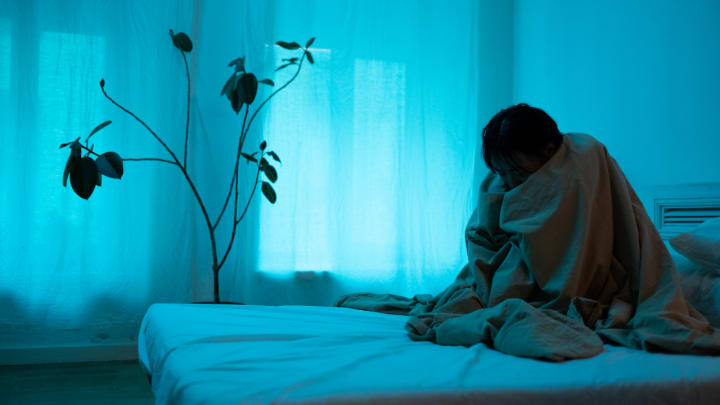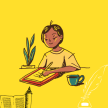What Is Phobia?
Phobia! Types, Causes, Symptoms and Treatment

Who does not fear? When the fear inside the person reaches its peak, then it is called phobia in the language of psychology.
Some people are afraid of snakes, some people are afraid of dogs, some people are afraid of altitude and water. Fear is a part of our life. But phobia (fear) about a particular thing hurts a person somewhere.
It happens many times that it becomes very difficult to overcome fear (phobia) and the person never touch that thing again or he is unable to do the work again.
If you do not know what can cause phobia, then in this article we are going to tell you what is phobia, types, causes, symptoms and treatment of phobia.
What Is Phobia?

Phobia is a type of anxiety disorder in which a person is very much afraid of some place, object, person or situation and is not in a position to face it.
Phobia causes a lot of harm to a person in an unwanted way. Phobia is quite different from the daily fear of something because it arises about a particular thing.
Many people are suffering from this problem all over the world and due to this they have to face many health problems as well.
Causes Of Phobia

Although there are many reasons behind phobia (fear), but mainly due to genetic and environmental factors. Children who suffer from phobia very quickly have a parent or close relative with phobia.
Apart from this, if a person drowns in a river, then seeing it drowning the other person can have phobia for life. Most people suffering from health problems are prone to phobias.
In addition, a person gets phobia due to brain injury. Phobia usually occurs during childhood, adolescence, and adulthood.
Symptoms Of Phobias

Symptoms of fear or phobia may vary from person to person. Some people have panic attacks when they have phobia. The following are the main symptoms of phobia.
- Heart beat very fast
- Shortness of breath
- Speak too fast
- Dry mouth
- Upset stomach
- Nausea
- Increased blood pressure
- To shiver
- Chest pain and stiffness
- To suffocate
- Dizziness or headache
- to sweat
- weigh on
- Hot summer or chills
- Confusion etc.
Is a symptom of phobia which can be seen differently in every person.
Types Of Phobia

There are many types of fear or phobia which are based on gender, cultural experiences and age. Some people are afraid of some things while others like the same thing. Phobia affects our everyday lives.
There are thousands of types of phobias according to medicine and science, but here we are going to tell you about some of the main phobias that affect our lives the most.
1. Agoraphobia (fear of the outside world)
It is a phobia in which a person is afraid of the outside world, place or situation and does not want to come among people and prefers to be alone.
A person suffering from agoraphobia wants to avoid the crowd and does not want to get out of the house.
Apart from this, if the phobia occurs, the person does not even appear in front of the guests in his house. Although this phobia can happen to anyone, children are usually more affected by agoraphobia.
2. Astraphobia (fear of cloudburst)
The fear of thunder and lightning is called Astrophobia. Such people do not leave early when the weather is bad because they are afraid of thunder and lightning.
3. Acrophobia (fear of hight)
This is Haight’s fear. People suffering from this phobia avoid the high floors of mountains, bridges or buildings. Symptoms of acrophobia (fear of hight) include feeling dizzy, sweating and feeling dizzy as if they would pass out or lose consciousness.
4. Social Phobia (fear of society)
Social phobia is a very common type of phobia and is seen in most people. When there is such phobia, there is more concern about participating in social work.
A person suffering from this becomes concerned with any social situation. This can be seen in everyday life.
For example, the person does not go alone to the restaurant and if he goes with someone, he is not able to order himself, he is afraid to answer by picking up the phone, hides from someone and does not ask any questions in the office or class And does not mean more than people.
5. Pogonophobia (fear of beard)
Although nowadays youth like to shave, but the fear of young people who have a beard is called Pogonophobia.
The person suffering from this fear does not allow his beard to grow and for some reason even if the beard grows, he does not delay shaving due to fear.
6. Cyanophobia (dog fear)
Afraid of dogs is called Cyanophobia. The person suffering from this phobia is scared to see the dog on the way and he thinks that the dog will bite him or the dog is barking at him. The person turns back and looks at the dog and until the path passes, the fear of the dog remains.
7. Ophidiophobia (fear of snake)
Although everyone is afraid of snakes, but people who start to get scared after hearing the name of snake, which can be seen in the dream also, it is called Ophidiophobia.
A person suffering from this fear always has a concern about the snake and he gets scared only by taking the name of the snake.
8. Nyctophobia (fear of the dark)
Darkness or fear at night is called Nyctophobia. This phobia begins in childhood and persists even after growing up.
The person with this phobia always has a fear of seeing something scary in the dark, due to which he is always afraid of the dark.
9. Ablutophobia (fear of bathing)
Being afraid of bathing is called Ablutophobia. This phobia is usually found in children but at the same time it can also occur in adults and the elderly.
A person suffering from this phobia avoids bathing. The children have to take a forced bath and the adult thinks again and again before taking a bath. This phobia is seen in most people during the cold season.
Treatment Of Phobia

Phobia is not a serious disease but just a problem that can be easily corrected. Cognitive Behavior Therapy and medications are used to treat phobia as it is associated with the brain.
Cognitive Behavior Therapy (CBT): CBT therapy is an attempt to identify fear and to overcome a person’s negative thoughts and beliefs and negative reactions. This treatment is a little difficult but completely removes the fear and anxiety of the person.
If you have phobia, it is important that you seek treatment. Phobia can be difficult to control, but not impossible. With the right treatment, you can learn to manage your fears and complete your healthy life.
We hope that you will like this article and will prove useful to you.
About the Creator
Shree Keshav
Do not dwell in the past, do not dream of the future, concentrate the mind on the present moment.






Comments
There are no comments for this story
Be the first to respond and start the conversation.